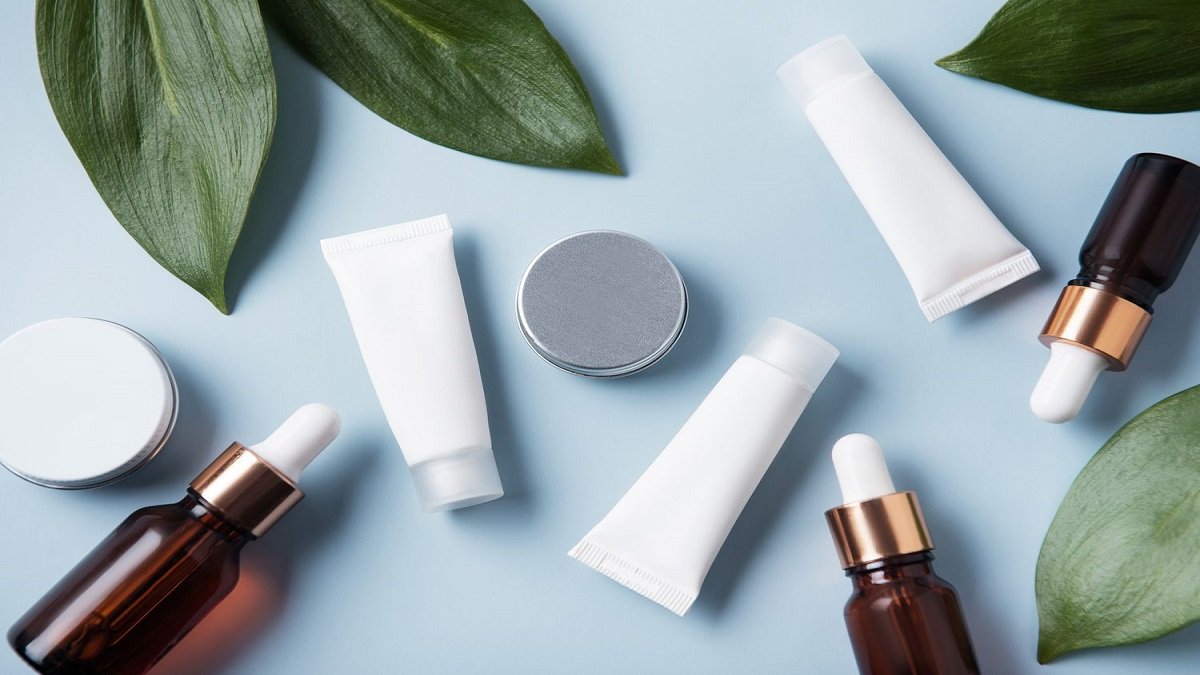Your skin changes with time; it gets less elastic and drier, which leads to wrinkles, fine lines, and other aging symptoms. While each person’s aging process is unique, you may start to see symptoms of aging as early as your 20s. That’s why you need tips for your anti-aging skincare routine.
Because of this, starting to use anti-aging components like hyaluronic acid, retinol, and niacinamide in your daily regimen is never too early or too late. At any age, a good skin care regimen may help maintain glowing, youthful-looking skin, but choosing the right regimen can be challenging given the wide range of products available.
Best Anti-Aging Skincare Routine

1. Apply A Mild Cleanser
Choosing the appropriate mild cleanser is one of the most effective tips for your anti-aging skincare routine, regardless of age. Harsh cleansers might irritate your skin and interfere with its natural barrier, so try to avoid using them.
Skin becomes more prone to moisture loss as it ages, giving the appearance and sensation of dry skin. The skin may be made more hydrated with a mild, nourishing cleanser that doesn’t leave it feeling tight or stripped after usage.
2. Exfoliate Often
Exfoliation has several advantages for your skin, including preventing the accumulation of dead skin cells, maintaining clean pores, and promoting youthful, glowing skin.
Additionally, it could assist your skin be ready to better absorb the remainder of your anti-aging skincare regimen. Discover exfoliating products for any anti-aging regimen.
3. Try Retinoids
Cell renewal is accelerated by retinoid, a vitamin A derivative. This potent element in skincare products increases collagen, enhances skin tone and texture, minimizes wrinkles, and is one of the anti-aging skin care tips.
When you first start taking retinoids, it might cause acne or dry out your skin. Take a low-strength retinoid every other day at first, then go cautiously. Work your way up to using the product daily or experimenting with a stronger strength gradually.
4. Avoid Smoking
Smoking may cause skin issues in addition to raising your chances of lung cancer and heart disease. Wrinkles may result from the way your face moves as you smoke.
Moreover, smoking constricts blood vessels, which is another impact of smoking. See a medical professional if you want to stop smoking. They may suggest a variety of tools and advice to help you prepare to stop smoking, such as quit plans and medication.
5. Use Super Foods
Always let the interior mirror the exterior! Your diet will have a big influence on your perspective! Eating meals high in vitamin C and omega-3 fatty acids will prevent and slow down the thinning of the skin and is one of the tips for your anti-aging skincare routine.
Carotenoids play a critical function in skin regeneration and soothing, act as great UV protection, and slow down premature aging of the skin. Among the meals you may want to try are:
- Pomegranate.
- Avocado.
- Blueberries.
- Flax seeds.
- Tomato.
- Sweet Potatoes.
- Carrots.
These super foods’ anti-inflammatory qualities will not only help your body and skin stay in balance, but they will also protect and restore your skin.
6. Eat Spices
Who would have thought that spices from your kitchen could rejuvenate your skin and make it seem years younger!? Without a doubt, this anti-aging advice will transform our lives.
Your skin’s elasticity and firmness may be improved, and its collagen content may increase by using cinnamon in your cooking. Aside from that, ginger is a fantastic component that has anti-inflammatory qualities and helps to prevent skin aging spots.
7. Rest Enough
Good meditation and getting enough sleep are two anti-aging tips that everyone should follow, no matter how corny they may seem. Lack of sleep has been shown to affect not only how your body functions physiologically but also to raise blood sugar levels, which causes the skin to relax and age, resulting in wrinkles.
However, meditation raises serotonin levels in the body, which is one of the finest natural ways to fight aging and is also being utilized as a skin treatment therapy. What sense does it make to spend money on those pricey procedures when you can have them with twice the advantages on your own?
8. Have Green Tea
It’s a common belief that more modest adjustments precede more major ones. Don’t miss out on these anti-aging skin care tips if you want to stop the signs of aging and appear youthful with glowing skin.
Remind yourself to have a cup of green tea the next time you’re craving coffee. Its free radicals fight against the aging process that occurs to your skin. If you’re considering tossing away the leftovers, keep in mind that you may use them to prepare a mask with yogurt and honey to treat acne and moisturize your skin.
9. Cut Back on Sodium Consumption
Elevated salt levels in the body have been associated with higher risks, including diabetes and heart failure. Individuals exhibiting such sodium levels also had advanced biological aging indicators associated with blood pressure and blood sugar levels.
When you cook using flavor enhancers that don’t need salt, such as garlic, lemon juice, and fresh herbs, you may cut down on sodium. A low-sodium diet will not only make you feel less bloated but may also lower your blood pressure risk.
First Signs of Aging
Usually appearing in your 30s, fine lines and wrinkles are the first obvious indicators of aging skin. As previously said, early indications of aging might differ from person to person despite having tips for your anti-aging skincare routine. Numerous variables, such as genetics, stress, environment, and lifestyle, influence how quickly your skin matures. The following are some of the most typical indicators of aging skin to watch out for.
Arterial wrinkles and fine lines: They are among the most well-known indicators of aging. As you get older, particularly in your 40s, you can notice that the lines and wrinkles on your face become more noticeable. An inevitable aspect of aging is the development of wrinkles. They are brought on by regular facial motions and a gradual loss of suppleness.
Sun exposure, pollution, and smoking are a few environmental variables that may either produce or exacerbate fine lines and wrinkles. Black spots (also known as age spots, sun spots, or solar lentigines): As you get older, the parts of your body that are exposed to the sun the most, such as your hands, arms, shoulders, and face, may start to develop tiny, flat black patches.
Sun damage is usually the source of dark patches. Although they are more frequent in those over 50, they may also appear in younger individuals who have spent a lot of time in the sun without protection.
FAQ
Q: When is the right time to begin utilizing facial anti-aging products?
A: Most individuals believe that they should begin taking anti-aging treatments well into their fifties when signs of aging such as wrinkles and sagging skin become more noticeable. As early as your 20s, you may and should begin utilizing these items.
Q: What happens if anti-aging products are stopped?
A: Your elasticity will alter, you’ll lose firmness and start to droop in certain places, your lines and wrinkles will be more obvious, your sun spots and pigmentation will become more noticeable and seem darker, and your skin will appear dull.
Q: What skin problems cause aging?
A: Healthy age-related skin changes, such as thinning, sagging, wrinkles, age spots, damaged blood vessels, and dry patches, are unavoidable. As we become older, we also experience an increased risk of unhealthy skin changes like skin cancer, which are often exacerbated by sun exposure.











